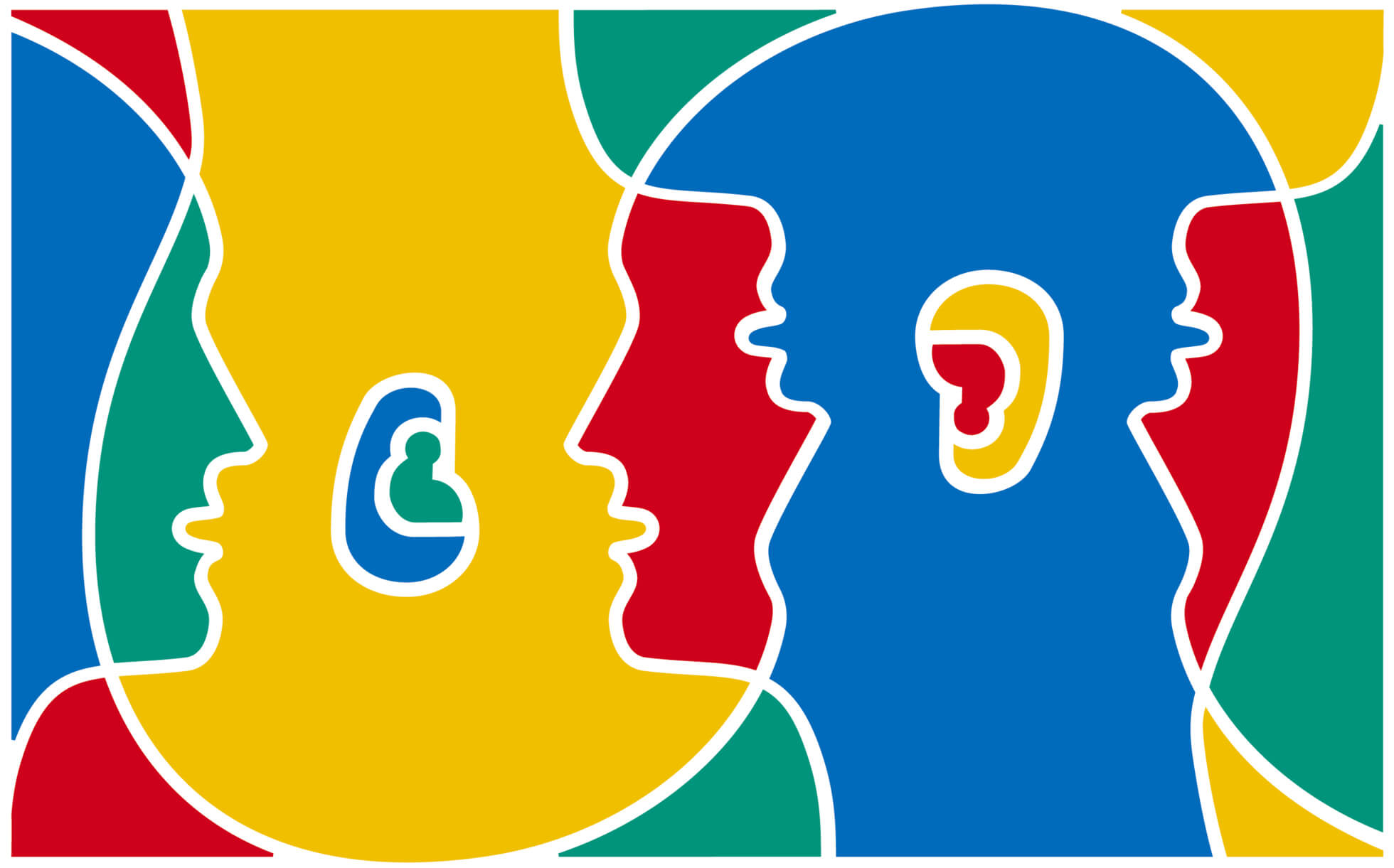English Words – How Many is Enough?
English Words – How Many is Enough? When it comes to language, one can never have too many words. According to BNC (British National Corpus), the...
Flexible group courses for everyday communication and fluency.
Academic EnglishPrepare for university study with advanced academic language skills.
Business EnglishEnglish for professional communication in corporate and workplace settings.
Private LessonsOne-to-one lessons tailored to your goals, schedule and interests.
Language ExcursionsLearn English while exploring Cape Town with your teacher as your guide.
Get the score you need with targeted strategies and expert support.
Cambridge ExamsPrepare for the FCE or CAE with structured, high-quality training.
TOEFL PreparationBuild confidence and test skills to succeed in the TOEFL exam.
Personalised one-to-one English lessons delivered online, on your schedule.
Corporate GroupsLive online training for teams, customised to your organisation’s needs.
English for Tech ProfessionalsSelf-paced English course designed for developers, engineers, and IT teams.
Qualify to teach English in South Africa or abroad with this practical course.
Blended Certificate in TEFLCombine online study with hands-on classroom experience in Cape Town.
Learn in a historic university campus right in the city centre.
Tours and ActivitiesExplore Cape Town and make friends through weekly excursions.
Social ProgrammeJoin our schedule of fun events, outings and conversations.
Getting AroundTips and tools for navigating the city like a local.
Social and DigitalStay connected online and through our vibrant student community.
A friendly, sociable student house just a short walk from school.
Adderley StudiosModern, secure apartments in the heart of Cape Town.
HomestayLive with a local family and experience South African culture.
Hotels & AparthotelsIndependent options for comfort, privacy and flexibility.
All tuition and accommodation fees in one clear table.
Booking InformationWhat to expect before, during and after you book.
Instalment PlansFlexible payment options for long-term bookings.
User LoginView your bookings, make payments, and manage your details.
Visa options and support for international students coming to South Africa.
Insurance & TravelWhat you need to know about travel, insurance and staying safe.
MyELC AppAccess your timetable, progress and more on the student app.
Arrival and OrientationHow we help you settle in on your first day in Cape Town.
How to request certificates, transcripts, or proof of enrolment.
Terms & ConditionsThe small print — bookings, cancellations, and more.
Contact UsGet in touch with the ELC team by email, phone or WhatsApp.
Privacy PolicyHow we protect your data and respect your privacy.
What makes ELC and UCT a great place to learn English.
About the University of Cape TownSouth Africa’s leading university and home to the ELC.
About the English Language CentreWho we are, what we offer, and how we teach.
Our TeamMeet the teachers, support staff and leadership team behind ELC.
Our international quality standards and endorsements.
Media & PressNews coverage, interviews and media mentions of ELC.
TestimonialsWhat our students, partners and teachers say about us.
BlogUpdates, stories and insights from the ELC community.
Flexible group courses for everyday communication and fluency.
Prepare for university study with advanced academic language skills.
English for professional communication in corporate and workplace settings.
One-to-one lessons tailored to your goals, schedule and interests.
Learn English while exploring Cape Town with your teacher as your guide.
Get the score you need with targeted strategies and expert support.
Prepare for the FCE or CAE with structured, high-quality training.
Build confidence and test skills to succeed in the TOEFL exam.
Personalised one-to-one English lessons delivered online, on your schedule.
Live online training for teams, customised to your organisation’s needs.
English for Tech Professionals
Self-paced English course designed for developers, engineers, and IT teams.
Qualify to teach English in South Africa or abroad with this practical course.
Combine online study with hands-on classroom experience in Cape Town.
Learn in a historic university campus right in the city centre.
Explore Cape Town and make friends through weekly excursions.
Join our schedule of fun events, outings and conversations.
Tips and tools for navigating the city like a local.
Stay connected online and through our vibrant student community.
A friendly, sociable student house just a short walk from school.
Modern, secure apartments in the heart of Cape Town.
Live with a local family and experience South African culture.
Independent options for comfort, privacy and flexibility.
Use our Course Wizard to match your goals and level to the best option
Course WizardAll tuition and accommodation fees in one clear table.
What to expect before, during and after you book.
Flexible payment options for long-term bookings.
View your bookings, make payments, and manage your details.
Visa options and support for international students coming to South Africa.
What you need to know about travel, insurance and staying safe.
Access your timetable, progress and more on the student app.
How we help you settle in on your first day in Cape Town.
How to request certificates, transcripts, or proof of enrolment.
The small print — bookings, cancellations, and more.
Get in touch with the ELC team by email, phone or WhatsApp.
How we protect your data and respect your privacy.
What makes ELC and UCT a great place to learn English.
About the University of Cape Town
South Africa’s leading university and home to the ELC.
About the English Language Centre
Who we are, what we offer, and how we teach.
Meet the teachers, support staff and leadership team behind ELC.
Our international quality standards and endorsements.
News coverage, interviews and media mentions of ELC.
What our students, partners and teachers say about us.
Updates, stories and insights from the ELC community.

Have you ever wondered why you may have done particularly well in a specific subject at school or university? Apart from the fact that a subject may have interested you quite a lot, it could have to do with the type of teaching you encountered in that specific classroom, or what you did differently in learning for that subject / the type of learner you are.
Certain people may find that they remember and understand things better when it is presented in visually. For example, do you prefer looking at diagrams depicting information? Or are you better at learning things when you are involved in some kind of physical activity? Some people dislike reading, while others love reading but are terrible at logical and mathematical reasoning.
In the world of education, it has been recognised that there are different learning styles and different techniques. Many people will have a mix of styles, favour one type over another, or use different techniques for different circumstances, or a number of techniques at the same time. There are many theories out there about these learning styles in education, and one of these is Howard Gardner’s multiple intelligence theory – ‘the seven learning styles’ – summarised as follows:
These learners prefer learning through drawing or visual depiction. They respond well to the use of multimedia in the classroom such as movies, pictures, charts and graphs, to name a few.
These learners learn best through movement, creating things, touching and carrying out some sort of physical activity. They respond well to things like role-play in the classroom, acting things out or physically putting things together like matching a piece of paper with a word to its partner meaning.
Aural means ‘relating to the ear, or sense of hearing’ and refers to learners who respond best to sound stimulus. They prefer to hear something than to read it, for example, and will often say things out loud (to themselves) to remember them better.
Social learners learn best through interacting with others and communicating. They enjoy groups and will usually have many friends. They learn best through this interaction with others.
Solitary learners are the opposite of social learners and learn well through independent/self study. Keywords include independent, introspective and private. They are counted as the most independent of the learning types. These types of learners can do well with online courses, for example.
Logical learners enjoy using their brains for mathematical and logical reasoning and are able to think in abstract ways, conceptualising and connecting concepts that may seem to have meaningless relationships to others. These learners enjoy calculating and tend to enjoy learning the rules and exceptions of grammar in English class.
Linguistic learners who love reading and writing, and enjoy expanding their vocabulary to be able to express themselves in their writing, poetry, and speaking, or understanding various texts.
Are you able to see yourself in more than one of these types of learning styles? Would you consider yourself a visual learner, but in fact find yourself repeating a number out loud to yourself when someone says it to you? Or, are you a logical learner who learns and performs best through solitary learning?
It’s very possible that you may favour one style more than the others, but use the other styles depending on the circumstances you find yourself in or the different task you are doing.
In the article, ‘The Myth of Learning Styles Debunked’, it is argued that multiple intelligences do not exist as such. One particular point stands out: “Not all learning happens the same way and nor should teaching. What’s crucial is to decide which techniques are best for which learning outcomes and not about customising a course based on learning styles.” We support this argument wholeheartedly and believe that it is imperative to look at a learning situation in the entirety of the learning context.
In the EFL classroom, all learning styles are taken into consideration. But, this does not mean a course is designed around a learning style. What we more commonly find is that different activities/exercises will facilitate learning outcomes better than others for particular and specific outcomes. For example, elementary students learning how to order food at a restaurant in English will almost undoubtedly practice this in a role play. It will be very difficult for the solitary learner to sit at home alone and read about these interactions, when the most important part of this learning exercise is about the production of the language in a particular environment – the restaurant. Similarly, students may not all be kinaesthetic learners, but students thoroughly enjoy being able to use the white board themselves to, for example, present the results of a team work exercise to everyone else.
At the UCT English Language Centre you will receive English classes taught by qualified English teachers who take all these things into account. Their experience and qualifications enable them to structure lessons that have something for everyone, and that take many different learning styles into account. Every Friday afternoon, teachers meet to discuss any issues or challenges that have arisen during the week and collectively, together with management, strive to think of ways these challenges can be resolved and students can get the maximum benefit from their lessons here.
We look forward to welcoming you to our English classes in Cape Town!

English Words – How Many is Enough? When it comes to language, one can never have too many words. According to BNC (British National Corpus), the...

How can WhatsApp Help You Learn English? On your first day at the UCT English language Centre, you will be asked if you would like to join the ELC...

6 Reasons Why You Should Learn English Abroad English is one of the most widely spoken languages in the world. It is the language of international...